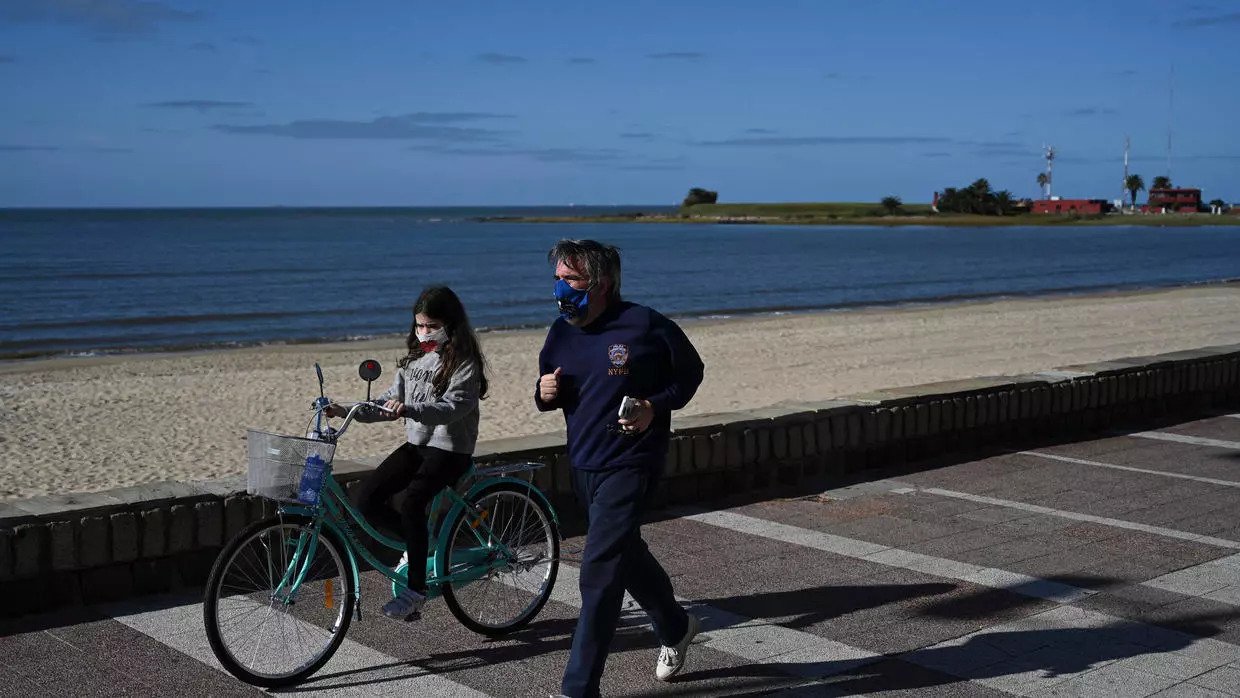RIO DE JANEIRO, BRAZIL – Uruguay seldom attracts much global attention. Perhaps best known to a wider audience in Europe for its top-class national soccer team and as the venue for the first World Cup in 1930, Uruguay is not a wealthy country, but one where social differences are not as marked as in the rest of the region. As a result, it was often referred to as the Switzerland of South America.
A better social balance and well-functioning institutions, particularly in the health care sector, may have contributed to the fact that Uruguay was not equally affected by the pandemic wave as other countries in the region. According to figures from Johns Hopkins University, by June 3rd, the country counted only 826 infections and 23 deaths out of a total population of 3.5 million.

The death rate per 100,000 inhabitants is thus 0.65. For comparison, the death rate in neighboring Brazil is 12.2, in Chile (the country with the highest average income in the region) it is 4.5, and even in Argentina, which is also conducting a relatively successful battle against the coronavirus, it is 1.1.
While the pandemic has not yet peaked in most of Latin America, Uruguay has been progressively reducing its protection measures since April. The building industry has been working again since April, and last month stores reopened. Schools have also opened, first in the rural areas and later in the cities.
Disciplined citizens
The first coronavirus case was detected in Uruguay on March 13th. The country immediately reacted by taking the same measures as most other countries: borders were closed, flights were suspended, schools and churches were closed, and major events such as soccer competitions and concerts were canceled.
However, no curfew for the population was decreed. President Luis Lacalle Pou, in office since March 1st, rejected it on the grounds that in this case the government would have to be prepared to intervene with harsh sanctions, including prison sentences, against offenders, which he does not consider to be effective.
Instead, he relied on voluntary action and appealed to the citizens’ sense of responsibility to stay home. His strategy was successful. In surveys, over 90 percent of respondents supported the government’s recommendation. Most stores closed voluntarily because customers stopped coming.
Well-prepared healthcare system
Uruguay also benefited from its comparatively good healthcare system and infrastructure. Virtually the whole population in the country has access to drinking water – a requirement for hygiene protection measures – which is by no means the case in other countries in the region. The centre-left governments that ruled the country for fifteen years until last March invested heavily in healthcare. In fact, for ten of those fifteen years, the country was led by a medical specialist, Tabaré Vazquez, a doctor and professor of oncology.
A comprehensive healthcare system was established, incorporating the public and private sectors. Home care is emphasized, and there is a health service throughout the country that addresses emergencies before they have to be referred to a hospital.
Covid-19 patients were thus tested at home and, whenever possible, cared for there too, which reduced the risk of the virus spreading. In addition, very broad testing was performed. Uruguay tested more than three times as much as Argentina and Brazil per 100,000 inhabitants. And this was done with a test developed domestically.
Pay cuts for politicians
Uruguay also took unconventional paths in financing the economic costs of the coronavirus measures. The wages of the President, Ministers, Deputies and senior civil servants have been cut by 20 percent, and the resulting savings will be used to finance a Coronavirus Fund. In addition, Uruguay applied for credit lines with institutional banks in the region (Banco Interamericano de Desarrollo and Corporación Andina de Fomento) at an early stage and was thus not affected by rising interest rates in the volatile financial markets.
Julio Vignolo, the epidemiological advisor to the Uruguayan government, acknowledges that the success in controlling the coronavirus is not only the result of the government’s measures, but also of certain favorable conditions in Uruguay. One of these is the relatively low population density. The approximately 3.5 million inhabitants live in an area four times larger than Switzerland.
The absence of large cities has probably also helped. Other than the capital Montevideo with 1.3 million inhabitants, the population of other cities does not exceed 100,000. However, Vignolo also cautions against excessive presumption based on the successes achieved so far. One has to reassess the situation on a daily basis. The virus is here to stay.

